Interviewing Watchmen co-creator Alan Moore: "It's one thing to quit comics, a different thing to stop thinking about them"
Interview | The writer on Illuminations and how he feels about comics now
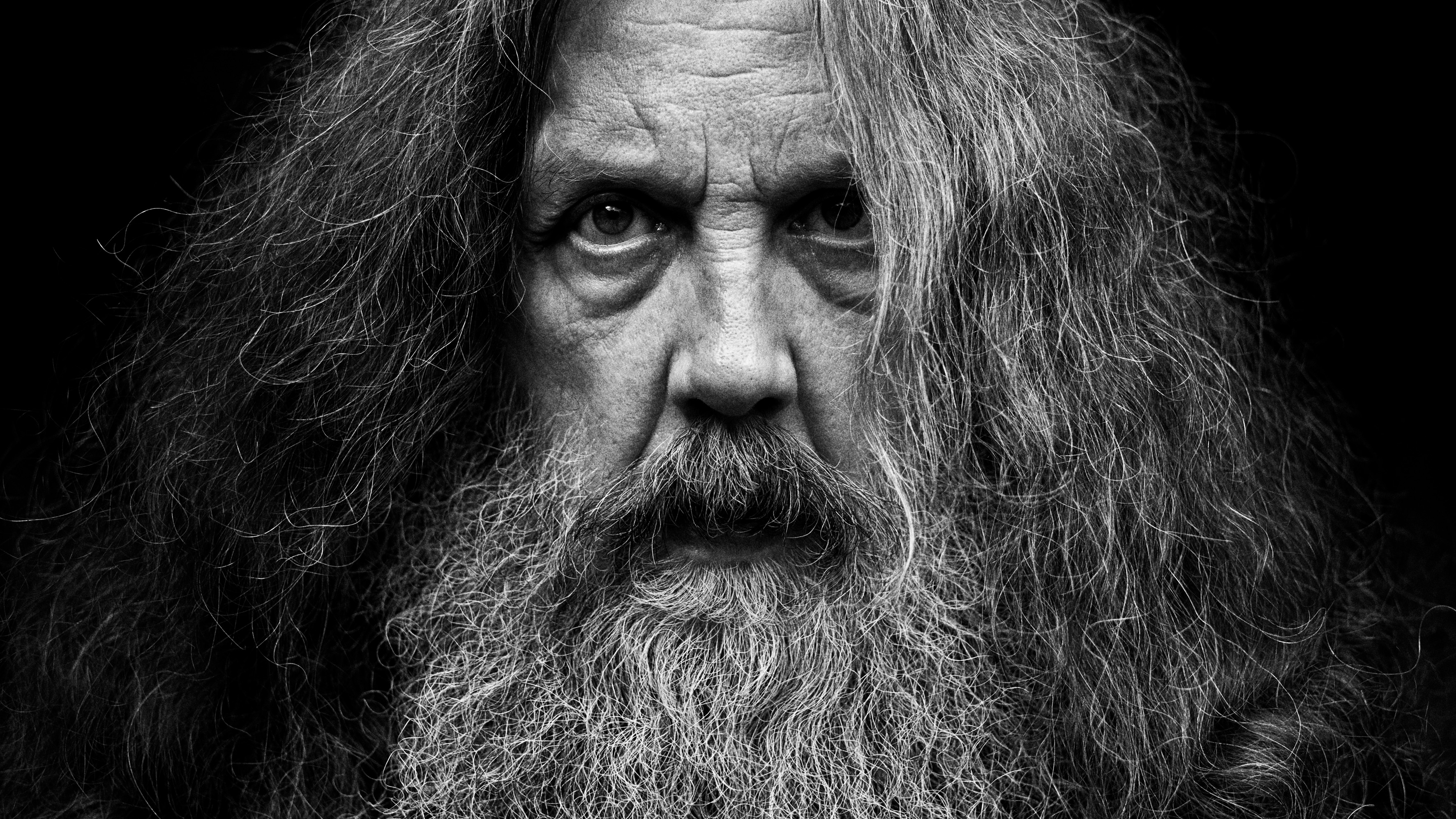
It's no exaggeration to say that, as the writer and co-creator of Watchmen, From Hell, V For Vendetta, The League of Extraordinary Gentlemen and countless other all-time classics, Alan Moore has defined, reinvented, and pushed the comics medium into more strange places than any other writer over the last few decades.
But, as anyone who has followed his work will know, his relationship with the industry has often been fraught. A couple of years back Moore decided that it was finally time to step away.
Still, comics' loss is literature's gain. Last year the writer published Illuminations, a terrific collection of short stories that demonstrates the huge scope of his imagination, and which points towards an exciting new phase for the writer.
Even so, comics remain an important part of Moore's history, and of Illuminations itself, with the collection's longest story 'What We Can Know About Thunderman' a biting satire of the superhero business.
Now that the book is out in paperback, we're releasing a longer version of an interview that I conducted last year for SFX #359, with additional quotes that were previously cut for space reasons. Read on to find out how much of 'Thunderman' is based on fact, his plans for the Long London quintet, and why he still believes the comics medium is "sublime."
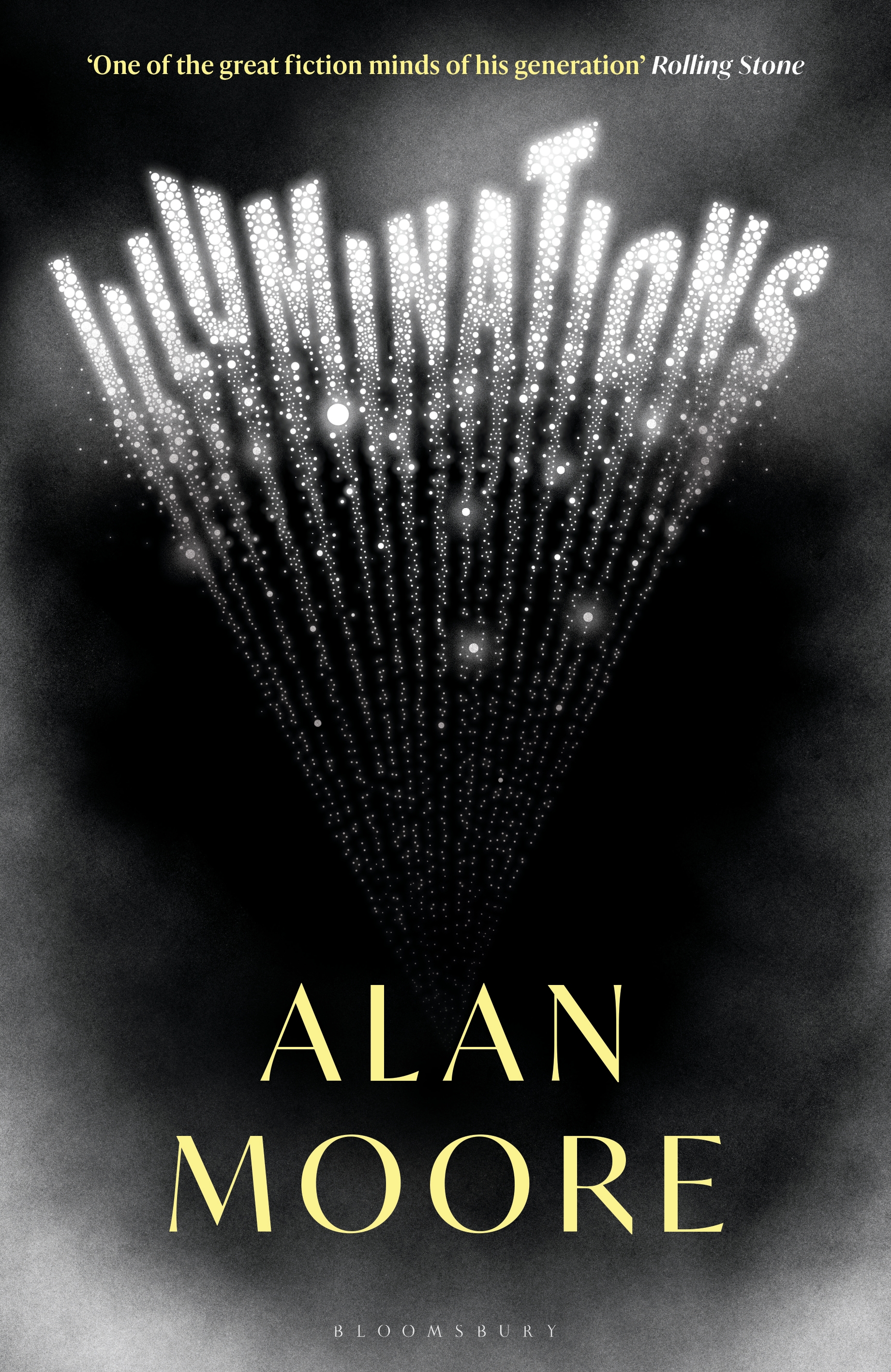
Newsarama: The oldest story in Illuminations goes back to the early days of your career, but you're not really known for short stories. Have you been secretly writing them all this time?
Alan Moore: I'm afraid that my working life really doesn't allow for that. I'm kind of envious when I hear about writers who can just dash off a short story and put it in a trunk and get to a point where they've got hundreds to choose from. Pretty much everything I've ever written has been immediately published, which is a good thing, but it doesn't really leave me with a huge trove of unpublished fiction. So the short stories in Illuminations, with a couple of omissions that didn't really seem to fit, that is pretty much my entire life in short stories.
Comic deals, prizes and latest news
Get the best comic news, insights, opinions, analysis and more!
That's the canon right there...
Pretty much, until I write some more, if and when that ever occurs.
When we put all the short stories together there wasn't even enough for a collection and so I thought, "I should write four new stories, that should just about round it out." I used the last four stories [in the book] to do a lot of things that I figured hadn't been done in the preceding stories. I was kind of showing off a little bit. I wanted to show people that I do have a bit of range.
It definitely does show range. You have everything from a ghost story to a satirical novella about the comics industry, and 'The Improbably Complex High Energy State', which starts off as hard SF before becoming almost a romantic comedy. Not something people maybe expect from Alan Moore...
I think that's probably the funniest of the stories, although it's not the only humor in there.
I think that sometimes people have this picture of me as this dark, gritty, dystopian guy. I do actually live in a dystopia - I'm in Northampton, which is a bankrupt and collapsed Middle England town - but humor has always been at the forefront of my work. Even in my grimmest work there's usually a few good jokes.
That story was a bit of a gift. I just started thinking about what the implications of entropy were, that if everything's going to end in a completely disorganised low energy state of freezing blackness and ruin, then that kind of implies that it must have started in a very ordered and complex high energy state. We know it didn't - or at least not the way that I've imagined it - but once I'd got that idea and I'd remembered about Boltzmann brains, I got a pretty good story out of it.
I love science for a lot of very worthy and respectable reasons, but the thing that I really love about science is the ideas. It doesn't really matter whether they're true or not - just as ideas they are often beautiful and useful. It is a fountain of just extraordinary concepts.
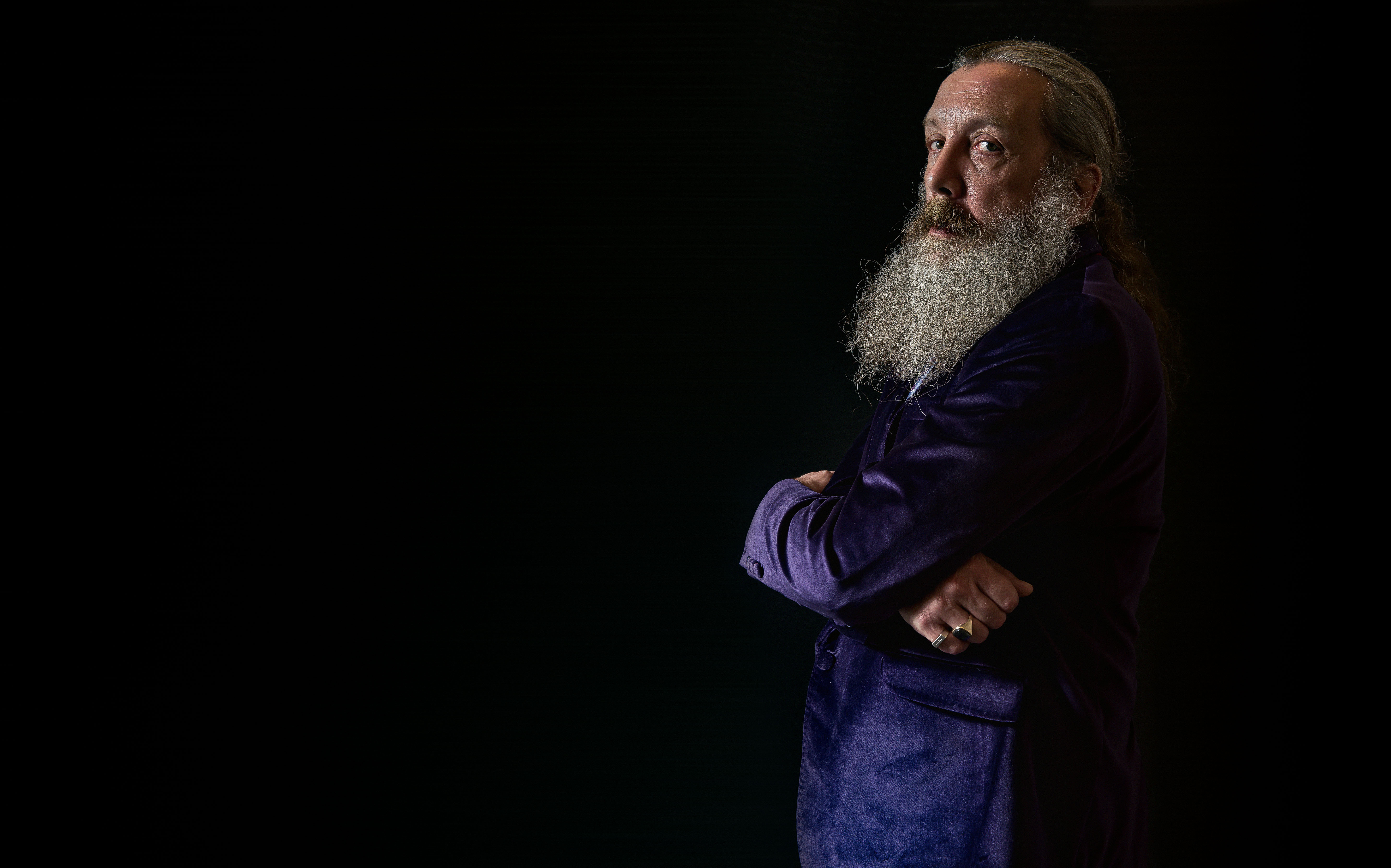
What do you find challenging about the short story medium?
There's the challenge of coming up with something new and delivering it in a limited number of pages, and then coming up with something else for the next story.
A novel has a completely different character. You have to think, "Well, I'm probably going to be writing this for years." It's more of an edifice. But short stories have got a real energy to them, because you're not investing years of your time.
That turned out to be the case with 'What We Can Know About Thunderman', which is a short story, because if I'd started that as a novel it would have been completely different. I'd have tried to make it much more serious. It happened so quickly, it was just pouring out of me. I think I say in the acknowledgments that it was like lancing a boil. So I got that story written within three months and it's novel-length. So short stories can be all sorts of things - even novels in disguise.
It almost feels like a gag that this short story collection has an entire secret Alan Moore novel hidden inside it. Was that deliberate?
That was not the intention, although I have since come to enjoy it.
I mean, 'Thunder Man' was an odd story. I'd been trying to write something like that for a couple of years, and I'd even made a start on a story, but I threw it all out because it hadn't got any real life to it. I realised that this was because I was setting it in England, where I had my first experiences of the comics industry. But I kind of realised that no, England is not where the comics industry is really happening. You've got to go to the source.
And I'd also had other vague thoughts going through my head. I'd been thinking about superhero costumes and neurological addiction since reading some interesting articles in New Scientist that seemed to suggest that a logo can actually imprint itself upon a child's brain, which I suppose shouldn't be surprising, that's what logos are designed to do!
Most superheroes can be reduced to just a color combination and a chest emblem. I had a strange image that was like something from an old Superboy comic, and I had no idea what it meant. It was an image of a normally dressed person walking in from the left of a kind of an archetypal 1960s comic book panel with a sort of a bland Midwest landscape and, on the other side, a fantastically-costumed superhero, and they're just walking towards each other as if to shake hands. That became the seed for the final scene. It was a really interesting experience writing that story.
Let's ask the obvious question... 'What We Can Know About Thunderman' is a satire of the comics industry. How much of it is true?
Some of the most grotesque scenes I've embellished and in some of them I've flat out lied, but I think that it captures the character of the comics industry and a lot of the most physically appalling things in there are very close to actual reality.
That said, it isn't a roman a clef. Most of the people in it are composites or inventions. One of the things that I was most pleased with about it was all the names. I've no idea where they were coming from: Jerry Binkall. Brandon Chuff. Worsley Porlock. You know that you're on a roll if you've got names like that cropping up.
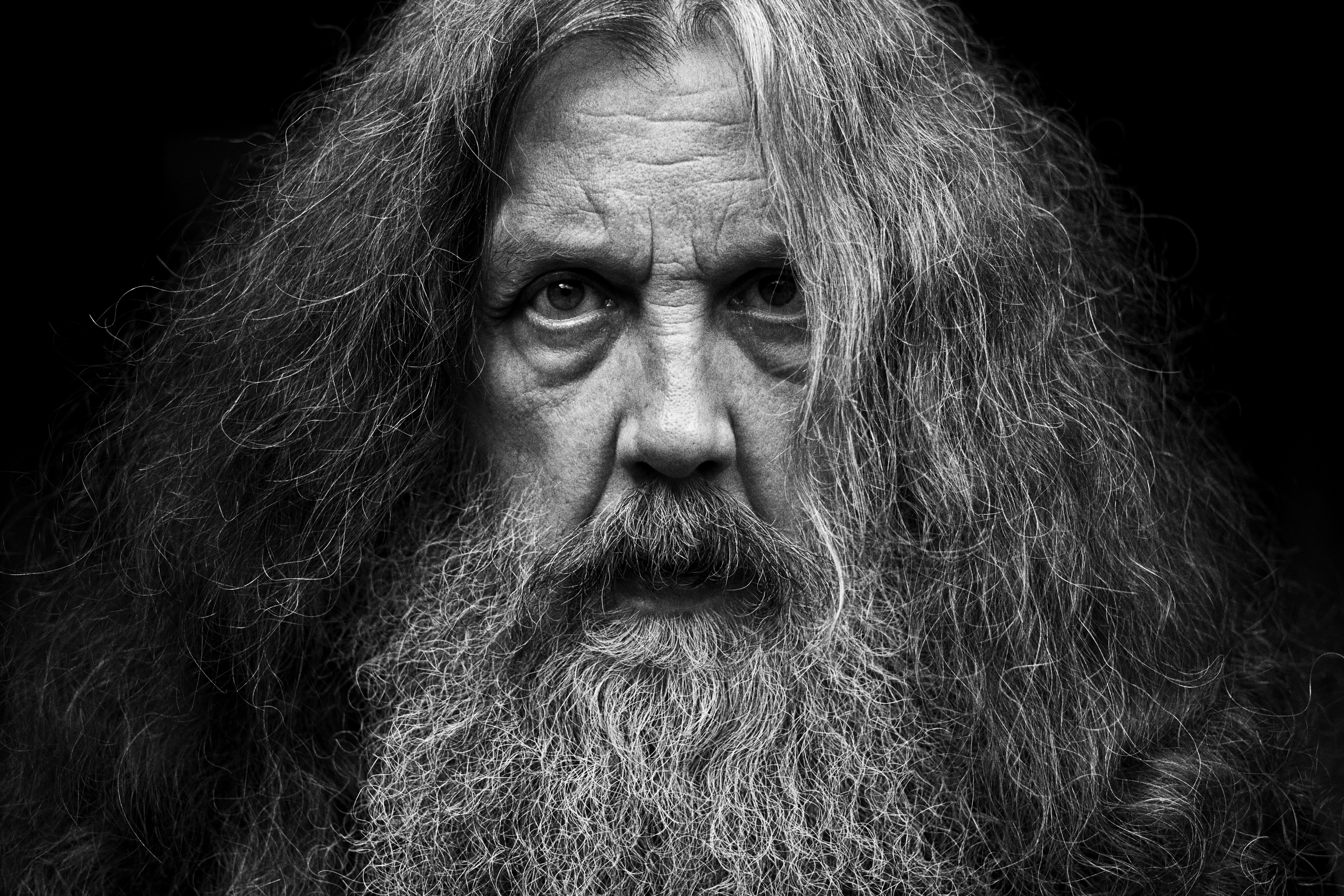
You're retired from comics and you've talked about your bad experiences with the industry before. So why return to the subject now? Is this an exorcism?
That's exactly the word. I've disowned most of my comics work, including stuff like Watchmen, V For Vendetta, all of the ABC stuff, everything that I don't own. The only active thing I could do was disown it, which was painful. I put an enormous amount of work and energy and a great deal of love into all of those projects and it felt like a bit of an amputation to disown them.
At the same time, that was the only way to cut out the poison. I don't have a copy of any of those works. I'll never be looking at them again. And even thinking about them, all I've got is memories of having my intellectual property rights stolen and then when I complained about that, being typified as a crazy angry guy; "Alan Moore says 'get off my lawn.'" And yes, alright, I was quite cross, but I don't think without reason and also to suggest that I'm angry about everything is an evasion. It's a means of going, "Oh well, if he's angry about everything then we don't have to worry about what he says about the way that people are treated in the comics industry, he's just angry about everything."
And once these things have been taken from my hands and made into franchises then they can be given to anybody to do what they want with and that will somehow still be associated with me.
The comics medium is perfect. It is sublime. The comics industry is a dysfunctional hellhole. So why did I want to return to it in this story? Like you say, it's exorcism. As one of the characters finds in 'Thunderman' it's one thing to quit comics, but quitting comics is a different thing to being able to stop thinking about them. Writing this got an awful lot out of my system. It said a lot of the things that I'd always wanted to say but I'd never really had the right context to say them in. But doing them in a Kafka-esque satire, that worked perfectly. And when I say a Kafka-esque satire, what I mean is that Franz Kafka, while he was reading his stories to his followers and appalled friends, he would be laughing almost too hard to get the lines out. It's horrible, hideous, appalling - but the author was probably giggling when he wrote it.
You called comics "sublime" just then and it really does feel like, despite everything, you still have a love for the medium. Is that fair?
Absolutely. I hope that my love of it comes across; my love of Jack Kirby and many of the other artists and a couple of the writers of his generation. The descriptions of a six-year-old kid glimpsing a comic book rack could not have been written without being able to tap into my memories of what that was like, a first exposure to comics.
The medium can do anything. Its potential is still almost completely untapped. So it was attempting to express my love of the medium, some of the wonderful people who worked in it, and to also express my horror at the fact that this this little offshoot, the superhero genre, has become a monoculture that's in danger of taking down at least a considerable part of the comics medium with it when superhero movies finally aren't interesting. When that happens, my worry is that a lot of the comic shops won't be able to continue and a lot of interesting independent comics would perhaps not have outlets.
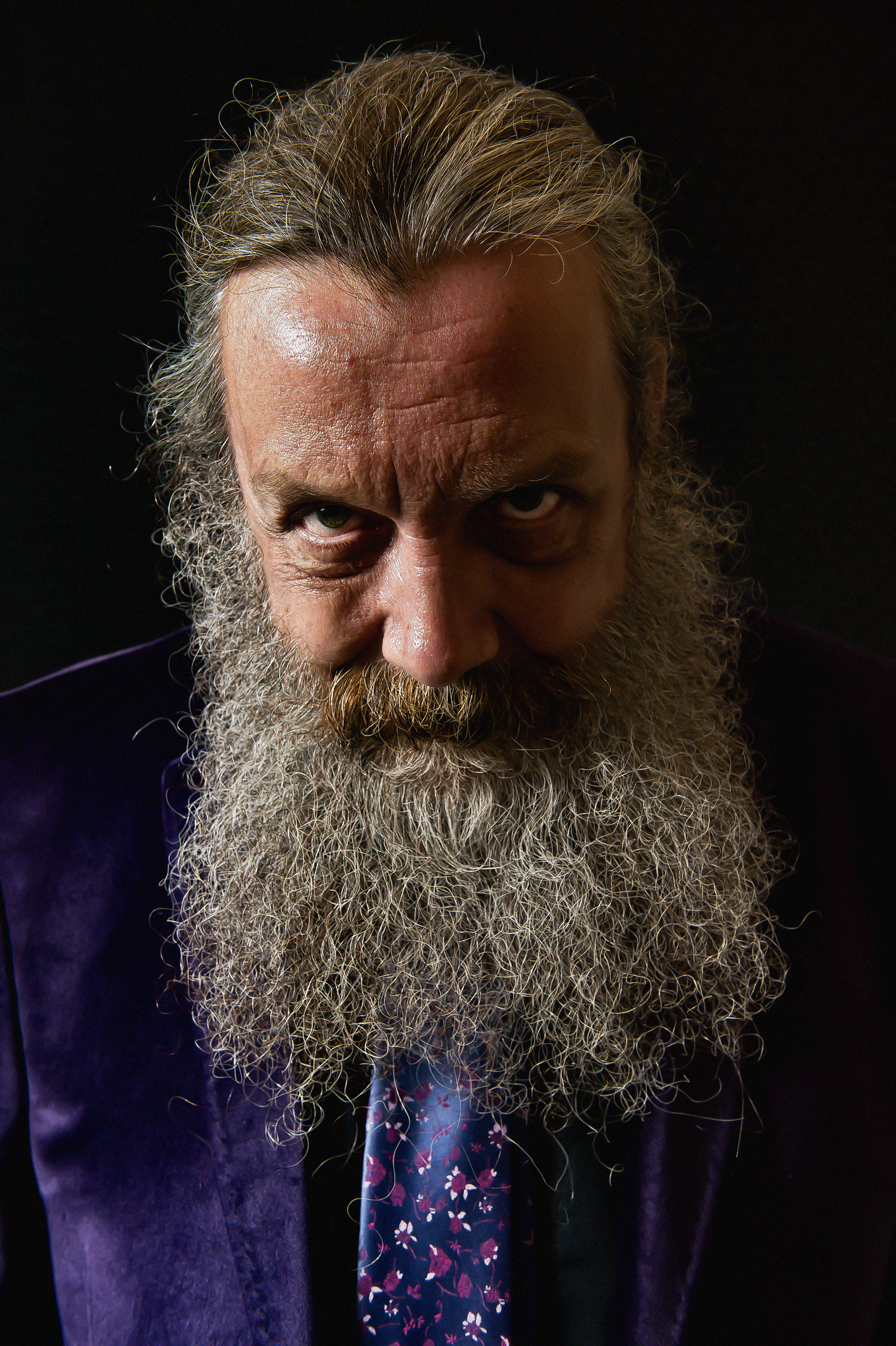
Is literature where you're focused now, and do you feel happier with the way it's going?
Much happier. I think that those last four stories in Illuminations feel like I have a certain spring in my step and a lot of enthusiasm. I've got a freedom now and all the work I'm doing is work that I own and I’m being legitimately rewarded for it. So yeah, this is delightful. It's a good way to end up and the work that I'm doing, I'm really, really pleased with.
Next up is the Long London quintet. What can you tell us about that?
I'm about halfway through the first book, which is called The Great When. I'm really pleased with that. It's nothing at all like Illuminations or Jerusalem. This first one is set in 1949 so I'm trying to conjure the mindset of that period. It's got an 18-year-old protagonist who knows very little of the world and over the next three or four books, he will grow up and the time period will change. I'm anticipating that there will probably be a different style for each book
Do you have the entire series mapped out?
I've got a functional plot that will take me through all five books. But a plot is the least of a book. The characters, the actual prose, the storytelling, these are all things that - at least to me - are much more important and interesting. If I know that the plot is going to work, that's great and then I can pile any sort of fabulous trappings on top of it.
With this first book, I knew that I'd have to set up things that are going to resonate through the whole series. But on the other hand, I'm trying to leave as much of it open to just immediate invention as I can, to keep it fresh. I've been coming up with really strange ideas and thinking, "Oh yeah, I've got to write that," without having any clear idea as to how they fit into the plot, but confident that, yeah, they will fit in. So I'm slowly feeling my way into the territory of Long London and finding out about it, as I hope that the eventual readers will do. It's a pretty good place to be.
Illuminations by Alan Moore is out now from Bloomsbury.
Looking for a way to read your comics on the go? Check out our guide to the 10 best digital comic readers for Android and iOS.

Will Salmon is the Comics Editor for GamesRadar/Newsarama. He has been writing about comics, film, TV, and music for more than 15 years, which is quite a long time if you stop and think about it. At Future he has previously launched scary movie magazine Horrorville, relaunched Comic Heroes, and has written for every issue of SFX magazine for over a decade. He sometimes feels very old, like Guy Pearce in Prometheus. His music writing has appeared in The Quietus, MOJO, Electronic Sound, Clash, and loads of other places and he runs the micro-label Modern Aviation, which puts out experimental music on cassette tape.


